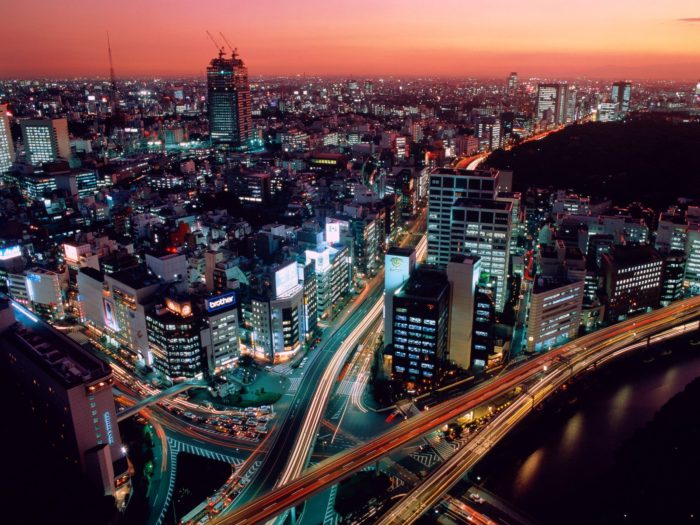Published in the Nikkei Asian Review 10/02/2014
Like Michael Bloomberg in New York and Boris Johnson in London, anyone who becomes governor of the sprawling metropolis of Tokyo has to combine the roles of CEO and number one salesman. In Tokyo’s case there are additional challenges such as preparing for the 2020 Olympics, dealing with the potential creation of a casino complex on the waterfront and leading the city into a more globalized, forward-looking era.
As long ago as 1720, Tokyo – then known as Edo – was the world’s most populous city. Today the conurbation known as Greater Tokyo remains the world’s largest, with a greater “GDP” than most European countries. The political entity known as Tokyo also contains some far-flung island chains, such as the Ogasawaras. In 2012, then governor Shintaro Ishihara proposed to add to their number by purchasing the Senkaku / Diaoyu chain from a private citizen. The result was a flare-up in tensions between Japan and China, which also claims the islands, and worldwide concerns about the potential for military conflict.
In other words, it’s a big deal who runs this city. Fortunately, Yoichi Masuzoe, the victor of the recent election, is well qualified to have the job. Unlike some of his predecessors he has the intelligence and sophistication to make an impact internationally. Between quitting his academic career at Tokyo University and entering politics, he was a regular, whip-smart commentator on current affairs talk-shows alongside, amongst others, “Beat” Takeshi Kitano, the award-winning movie director and comedian.
Importantly Mr. Masuzoe is backed by the Abe administration. As with many capital cities, Tokyo is more left-wing that the country as a whole, and anti-Abe forces may have dreamed of building a coalition of resistance around a new governor hostile to nationally-determined policies. This is exactly what happened in London twelve years ago when radical populist Ken Livingstone operated something akin to his own foreign policy, setting up oil deals with Hugo Chavez of Venezuela, visiting Cuba and slamming the United States at every opportunity. In Tokyo a stand-off between the city government and the central government would risk a return to policy stasis. Thankfully no such thing is likely to happen now.
The reality is that, barring accidents, the prime minister and the policies he embodies are going to be around for a long time to come. His support ratings have stayed high for so long because Abenomics is clearly working. Both consumer confidence and business confidence are hovering at the highest levels this century. Real estate prices are on the move and half a million new jobs have been created in the past year. With the labour market tightening even in the small company sector, wage hikes are finally on the cards. Polls showed that economic issues were the top priorities of Tokyo voters, which made Mr. Masuzoe’s victory a foregone conclusion – even amidst an impressively wide choice of candidates.
Amongst the other contenders were a classic left-winger and a 78 year old anti-nuclear activist who happens to be a former prime minister and the scion of a family that traces its roots back twelve hundred years. For the nationalistically-inclined there was a fire-breathing retired general. For those with a sense of humour, there was the inimitable Doctor NakaMats, self-described inventor of the floppy disc, as well as the self-defence wig, the magnetic condom, flying shoes and many other remarkable items.

The entertainment value was high too. There was something reminiscent of Greek drama in the spectacle of the 74 year old Junichiro Koizumi – his flowing locks now white, but still world-class – coming out of retirement to campaign against the candidate backed by his own protégé, Prime Minister Abe. If nothing else, it was a telling display of Japan’s silver power.
The other clear winner from the election was Japan’s post-war democratic system. Fifteen or twenty years ago that wouldn’t have needed saying, but in today’s world countries that are non-democratic or have seriously flawed democracies are wielding increasingly large amounts of political and economic power.
In contrast, modern Japan’s political culture is robust. That the election happened in the first place was because of public outcry against the incumbent Naoki Inose. After Japan’s rumbustious weeklies revealed he had failed to declare a political donation of $500,000, his position became untenable. Even with the city half-paralyzed by a record-breaking snowfall, voter participation comfortably exceeded the turnout in the last London election, let alone the feeble performance of New Yorkers in 2009.
Previous holders of the office have included some significant figures – from the first governor, Ichio Okubo, previously keeper of barbarian books under the shogunate, to the free-spending Ryokichi Minobe of the 1970s. During the post-bubble malaise, though, the record has been mixed. The underwhelming Mr. Inose took over after two and a half terms of Shintaro Ishihara, who succeeded a cross-dressing comedian.
Ishihara is a controversial figure – almost a right-wing version of London’s “Red Ken” Livingstone – but made few significant changes in his thirteen years in office. Apart from kicking off the Senkaku / Diaoyu brouhaha, his legacy includes exterminating thirty thousand crows and ordering the removal of the Tsukiji fish-market, much loved by tourists, to the city’s outskirts.
Which kind of governor will Mr. Masuzoe become? Just as economic debility brings political debility, so successful economies tend to breed successful political leaders. If Abenomics fulfils its early promise, Tokyo’s new governor will have ample opportunity to make his mark on one of the world’s greatest cities.

